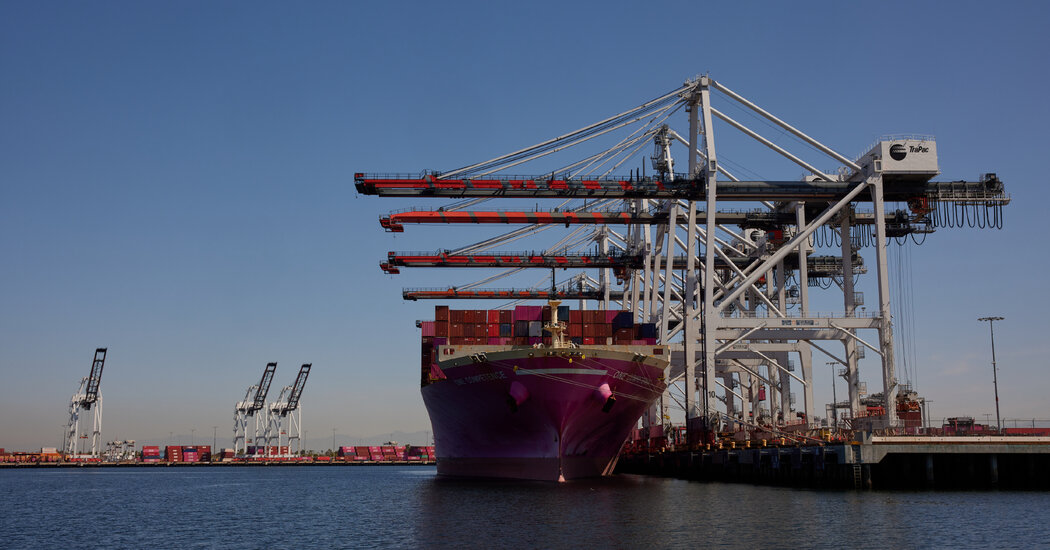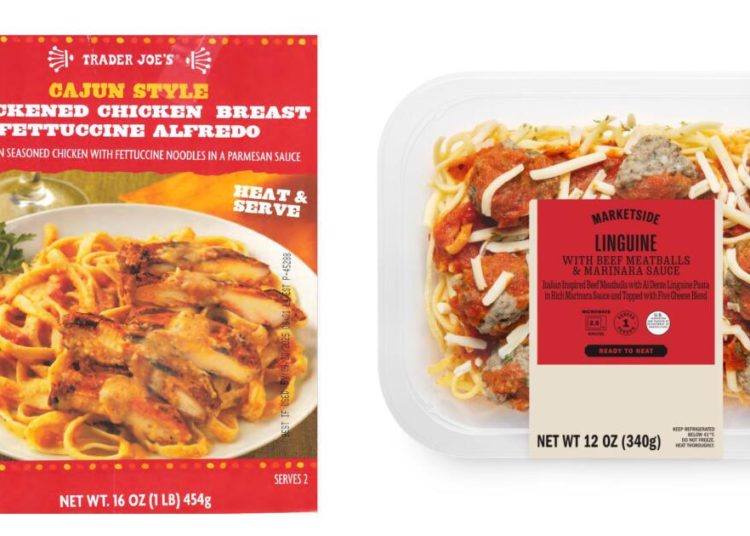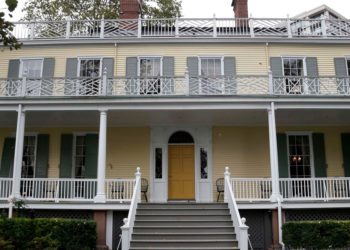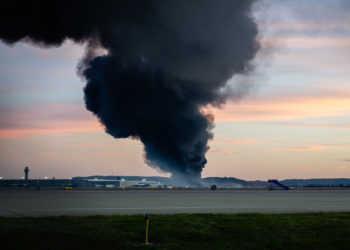A majority of Supreme Court justices on Wednesday asked skeptical questions about President Trump’s use of emergency powers to impose tariffs on imports from nearly every U.S. trading partner, casting doubt on a centerpiece of the administration’s second-term agenda.
The outcome of the case, which could be decided within weeks or months, has immense economic and political implications for U.S. businesses, consumers and the president’s trade policy.
Several members of the court’s conservative majority, including Justice Amy Coney Barrett and Justice Neil M. Gorsuch, joined the liberal justices in sharply questioning the Trump administration’s assertion that it has the power to unilaterally impose tariffs without Congressional approval.
Justice Barrett, who is seen as a key vote, questioned the scope of President Trump’s reciprocal tariffs, which she described as “across the board.”
“Is it your contention that every country needed to be tariffed because of threats to the defense and industrial base?” she asked. “I mean, Spain? France? I mean, I could see it with some countries but explain to me why, as many countries needed to be subject to the reciprocal tariff policy, as are.”
Several justices also noted that Mr. Trump is the first president in nearly 50 years to claim the emergency statute allows the president to impose tariffs.
At issue is Mr. Trump’s use of the International Emergency Economic Powers Act of 1977 to unilaterally set tariffs on imports from more than 100 countries in an attempt to reduce the trade deficit and ignite more manufacturing in the United States.
D. John Sauer, the U.S. solicitor general, told the justices that Congress intentionally conferred major powers on the President to address emergencies. The case, he said, is not about the “power to tax,” but the ability to regulate foreign affairs.
The fact that tariffs raise revenue, he said, is “only incidental.”
In the lead up to Wednesday’s argument, Mr. Trump called the case “literally, LIFE OR DEATH for our Country,” underscoring the degree to which he views it as critical to his trade and foreign policies. Without the emergency power, he said in a social media post, the country “is virtually defenseless against other Countries who have, for years, taken advantage of us.”
The tariffs were challenged in court by a dozen states, in addition to small businesses, including a wine importer and an educational toy manufacturer. Hundreds of small businesses have separately joined court filings that call Mr. Trump’s actions unlawful, saying the tariffs have forced them to raise prices and scale back staffing.
Until now, the court’s conservative majority has been largely receptive to Mr. Trump’s claims of presidential authority, but it has ruled largely on emergency orders that have been technically temporary. The tariffs case, which is considered a legal tossup by experts, is the first time in Mr. Trump’s second term that the justices will address the underlying legal merits of a major administration priority in a more lasting way.
The key question for the justices on Wednesday was whether the president exceeded his authority when he used the 1977 emergency statute. Past presidents have relied on the law to impose sanctions or embargoes on other countries, but Mr. Trump is the first to use it to impose tariffs.
Justices Gorsuch and Barrett, both nominees of Mr. Trump, raised separation-of-power concerns, given that the Constitution gives the power to tax to Congress.
They suggested the administration’s position could represent an unconstitutional delegation of legislative power to the executive branch that would be difficult for Congress to reclaim if allowed to persist.
Justice Gorsuch warned of “a one-way ratchet toward the gradual but continual accretion of power in the executive branch and away from the people’s elected representatives” in Congress.
Almost immediately after returning to the White House for a second term in January, Mr. Trump announced tariffs on goods imported into the United States from China, Canada and Mexico, saying the levies were a punishment for those nations’ failing to stop the flow of fentanyl. In April, he expanded the tariffs to imports on goods from more than 100 trading partners, saying they were needed to address trade deficits with the rest of the world.
Under the law, the president has the authority to take certain steps in response to a national emergency to “deal with any unusual and extraordinary threat” to “the national security, foreign policy or economy of the United States.” That includes the power to “regulate” the “importation” of foreign property, which the administration argues allows Mr. Trump to levy tariffs.
The challengers counter that the word “regulate” does not encompass the power to impose tariffs. The statute itself does not include the words “tariffs,” “taxes” or “duties.”
The challengers say that when lawmakers have intended to delegate tariff authority to the president, they have done so in plain language — and with limits — as they did in several other statutes.
Justices Brett M. Kavanaugh and Samuel A. Alito Jr. had the toughest questions for the challengers, suggesting some openness to the administration’s interpretation of its emergency powers. Justice Kavanaugh expressed concern about taking tariffs away from the president’s “suite of tools” to deal with economic emergencies.
Why, he asked, would Congress give the president the authority to shut down trade — which the challengers said the law allows — but not to take the less sweeping step of imposing even a modest 1 percent tariff? That, Justice Kavanaugh said, appeared to underscore the government’s claim, creating an “odd doughnut hole in the statute.”
“It’s not a doughnut hole,” responded Benjamin N. Gutman, the solicitor general of Oregon, who argued on behalf of the states. “It’s a different kind of pastry.”
If the justices were to rule against Mr. Trump, the administration says it would be forced to unwind trade deals with other countries. The government also might have to pay billions in refunds to importers.
Mr. Sauer, the solicitor general, has told the court that rolling back the tariffs could lead to economic ruin akin to the Great Depression, an interruption of trade negotiations and diplomatic embarrassment.
But even with a loss, the president would have other options. He could rely on different statutes to impose duties, but on a more limited basis and with less flexibility. The administration has proposed or issued tariffs that cover roughly a third of U.S. imports under a nonemergency provision related to national security, known as Section 232.
The case reached the Supreme Court after three lower courts concluded the tariffs were unlawful.
In August, the U.S. Court of Appeals for the Federal Circuit ruled 7 to 4 that the emergency statute did not authorize the sweeping tariffs while declining to decide whether the statute might allow Mr. Trump to impose more limited duties.
“Whenever Congress intends to delegate to the president the authority to impose tariffs, it does so explicitly,” the appeals court’s majority said.
In dissent, Judge Richard G. Taranto, who was appointed by President Barack Obama, said that the statute should be read to give presidents more flexibility to respond to emergencies and that it represented “an eyes-open congressional grant of broad emergency authority in this foreign affairs realm.”
Ann Marimow covers the Supreme Court for The Times from Washington.
The post Key Justices Cast a Skeptical Eye on Trump’s Tariffs appeared first on New York Times.




